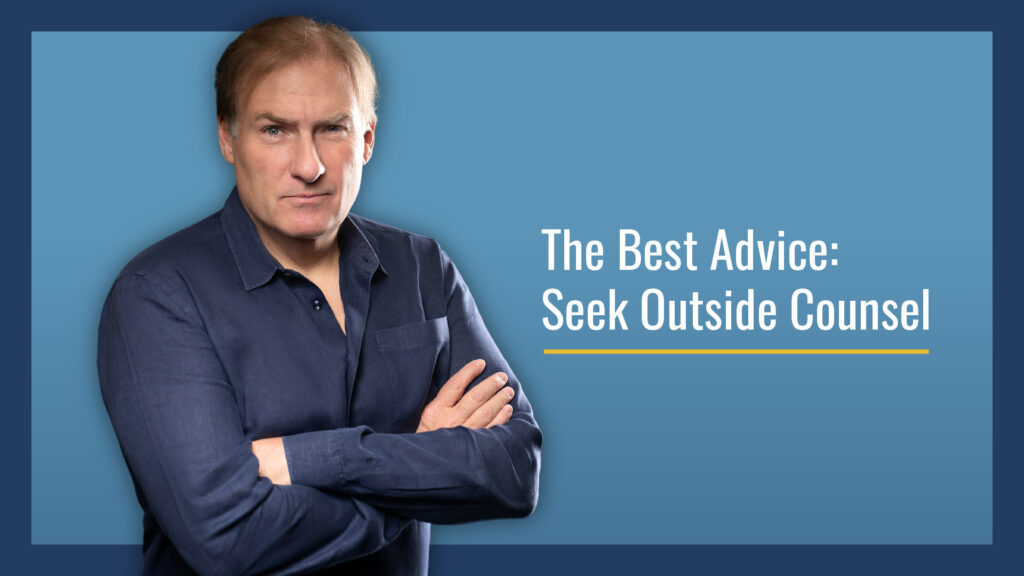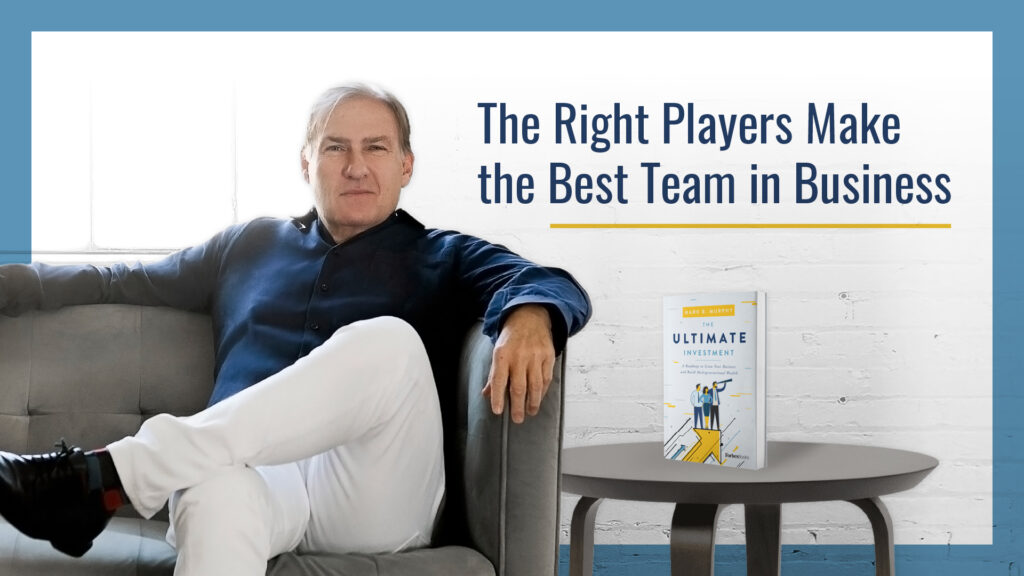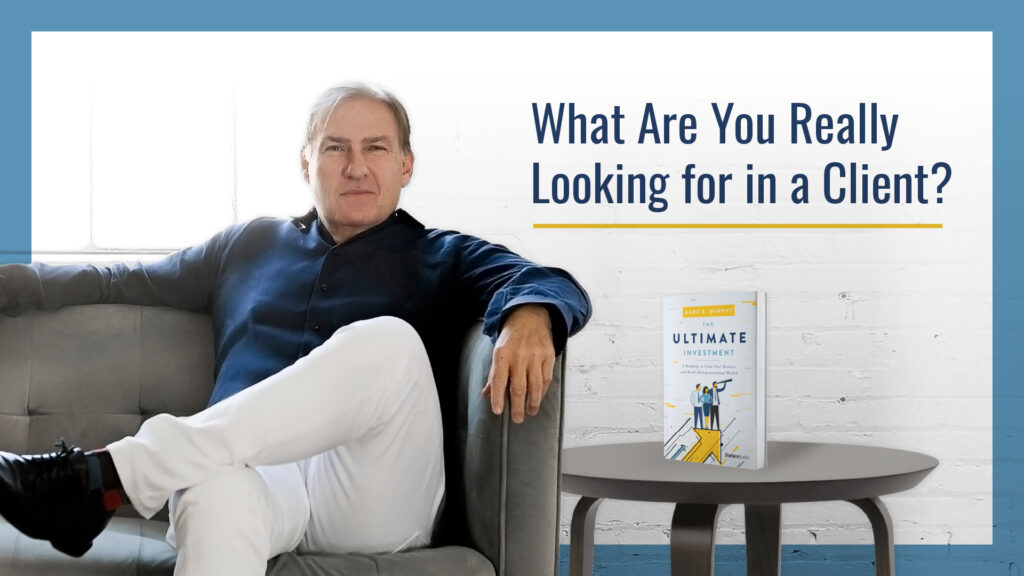In a previous blog, I talked about how the best investment you can make is you—hands down, there’s no better place for an entrepreneur to put their hard-earned dollars. And of all the things you can invest in for yourself, your mind is top of the heap. By that, I mean emotional fitness—your behavior determines the overall fitness of the organization. If an entrepreneur is erratic and always operating in reaction mode, then the business itself will suffer. Instead of being focused on the vision and forward outlook, the business will spend all of its energy focusing on foibles and weaknesses.
Sure, you need to identify and fix problems in the company, but that should not be the sole focus. An organization that is constantly putting out fires has no time to blaze a trail forward—and isn’t that what entrepreneurs ultimately crave?
A leader who is emotionally fit, on the other hand, operates intentionally. That means meetings have an agenda in order to steer the dialogue toward a specific outcome. The same should be true of the organization as a whole: practice intentionality in everything you do.
Similarly, keeping your emotions in check can help keep you from getting too invested in the weeds. Another way to be more emotionally fit is to avoid majoring in minor things. Unfortunately, that’s a common trait in most entrepreneurs and entrepreneur wannabes. Their commitment to the business is indisputable—but all those hours they spend on tactics that don’t move the needle for their business don’t equate to efficiency. If you tie up your time all day, trudge home exhausted after a twelve- or fourteen-hour day, you might feel like you’ve accomplished a lot since you gave the most valuable thing that you have—your time—to the business. But if those hours weren’t spent the things that are really important to the business, you’re wasting your time and the business will ultimately stagnate.
When you’re majoring in minor things, you’ll fail to see the big picture and direct your organization in only the way a true leader can. When you have strong bearings over your emotions, you’re more likely to earn the respect of your clients and team—that’s crucial to entrepreneurial success.
Similar to an officer leading soldiers into very dangerous situations, having the trust and respect of the soldiers is critical to the success of the mission. Now, I’m not suggesting you run your organization like boot camp, nor should you do the opposite—bend over backwards to make sure everyone in the organization adores you. Being liked as a leader is different than being respected. As the owner of your company, you hold the microphone, so when you speak, your staff—or “soldiers,” so to speak—should have enough respect for you that they trust what you say and they respect your visions. That’s how you earn their loyalty, and that reflects in the outputs of the organization.
During the Vietnam War, when officers were not respected or trusted, soldiers would often “frag” them or use fragmentation grenades to kill them; the devices made it appear as though the officer had died in combat. Given the opportunity, would your employees do the equivalent of fragging you? If the answer is anything but no, certainly not, then it’s time to reevaluate how you can earn respect.
Where should you start? Well, the golden rule is always a good place: do unto others as you would have them do unto you. Being willing to give respect is a good first step toward earning respect. A little kindness can also go a long way, and earn you a little kindness in return.
Another way to earn respect among your folks is to look beyond the dollar bill. People often think that owning your own business means exponentially augmenting the amount of money they make. Of course you’re going to work for money, but investing your time and effort in your own business should also mean going beyond the aspirations of just money. You also need a greater purpose. And you need to help your employees see that purpose, that vision, so that they can see beyond the dollar bills as well. You need them to see your authentic ambition so that they feel they are genuinely contributing to something bigger.
The truth is, in the long run, money won’t keep people working at peak performance. Today’s employees want work-life balance as much as a healthy paycheck. They want to feel like they’re part of something remarkable. When I launched my business, sure, it was to make money. But I also thought this company would be my vehicle to making other people’s lives extraordinarily better.
When I’m staying emotionally fit I’m best able to show my employees that this is not just about money. When my emotions are in order, I have a clear head that’s not influenced by my heart. And when I have that kind of control over myself, I am able to guide my company and employees to our vision and long-term goals. I am able to take the focus away from just making money because I am stable enough to keep my eyes—and theirs too—on the target: our mission, our vision, or our higher purpose.
If it was just about money, you wouldn’t see the level of commitment that exists in our organization. Some of the younger members of the team, I’d almost swear don’t have a place to live and use the office washroom to brush their teeth because they always seem to be there working. Now, I don’t condone workaholism, but the point I’m making is that they work with such commitment and ambition because they’re motivated and thrilled to feel like they’re contributing to something great.
When a leader is a calming, strong, positive influence and presence, it allows the organization to remain focused on goals by feeding off that energy—and without distractions.
Being an emotionally fit leader also allows for more innovation. Every year, it’s my job to look for at least three new, big ideas or big strategies to introduce to the rest of our team. Those innovations need to make our company viable five, ten, or twenty years from now. It’s like the hockey great Wayne Gretzky who says he doesn’t skate where the puck is but where it’s going to go. Like Gretzky, I need to envision where we are going and traverse a path toward that trajectory for the entire company. Every year my goal is to put last year’s company out of business. I want our current company to seem antiquated and a relic of the past.
That kind of strategizing keeps us nimble, and that’s what it takes to survive—and thrive—in today’s marketplace. Change is good for entrepreneurs, even when it doesn’t look like it. During the pandemic, the nimble and strong companies reinvented themselves and came back bigger, better, and stronger than before. Companies on the edge used the pandemic as an excuse for their failures.
It boils down to the way you think. My high school principal used to say there are three types of people in the world: people who make things happen, people who wait for things to happen, and people who say, “What happened?” Entrepreneurs need to believe that the future will unfold in direct correlation to the hard work they’re willing to put in. Do you have the will and emotional fitness to succeed?









